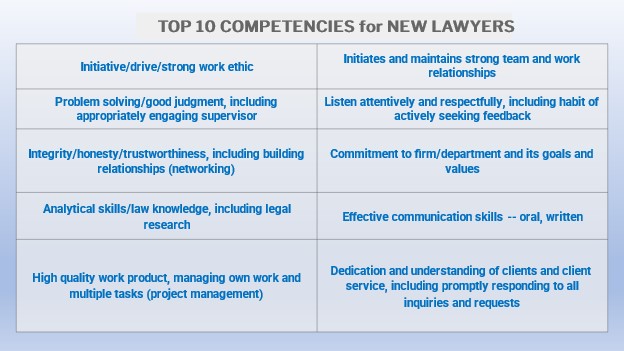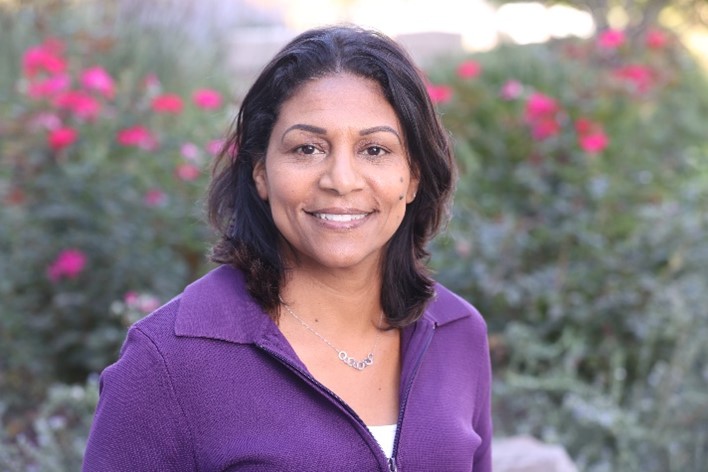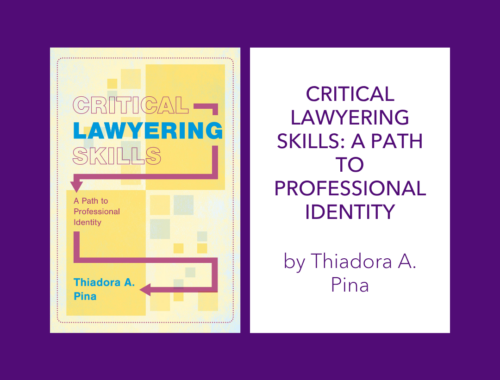By Thiadora A. Pina, Clinical Professor & Director of the Externship Program,
Santa Clara University School of Law
At Santa Clara University School of Law (SC Law), our Critical Lawyering Skills Seminar is a mandatory, 1-credit first-year course. The course is designed to develop our 1L’s professional identity, which includes cultural intelligence, values, and law student and lawyer wellness. Since 2018, our course evaluations remain overwhelmingly positive. Moreover, this high level of success is consistently achieved across eighteen small sections and all ten professors who teach this course.
The 1L Critical Lawyering Skills Seminar (CLSS) develops our law students’ professionalism by focusing on the top lawyering competencies students need to succeed and enter practice. Fortunately, we do not have to guess or rely on individual ideas or experiences to understand how law students can best prepare to enter the legal market and thrive as new lawyers. The work has been done for us.
There are multiple studies that clearly tell us which skills, characteristics, and values are important for new and successful lawyers. CLSS uses this data, in conjunction with the principles of positive psychology and andragogy, to ground its pedagogy. CLSS relies on the following studies:
- Foundations for Practice (IAALS) (2016)
- Attorneys General/Non-Profit (ROADMAP) (2018)
- Small and Large Firms (ROADMAP) (2018)
- Predicting Lawyer Effectiveness (Shultz/Zedeck) (2011)
- Building a Better Bar (IAALS) (2020)
CLSS helps students think strategically about their professional identity and the critical skills they need to practice law successfully by focusing on the top competencies these studies identified as necessary for first-year lawyers. Collectively, the following competencies bubbled to the top:

Because SC Law was an early adopter of this focused pedagogy, the challenge was how to teach and scale this course across the 1L class. Other than Neil Hamilton’s ROADMAP text, no other widely circulated curriculum focused on law student professional identity formation. Nonetheless, SC Law remained committed.
This commitment eventually led to developing and adopting a professional identity curriculum packaged (with ROADMAP) into an interactive Workbook, Essential Lawyering Skills: A Companion Guide to Neil W. Hamilton’s ROADMAP (ELS), published in September 2021 by ABA Publishing.
ELS is data driven and builds upon ROADMAP’s strong foundation by providing activities that personalize each student’s path to professional identity and meaningful employment. ELS enables students to take charge of their own professional development and strengthen the lawyering skills legal employers have identified as necessary for first-year lawyers to succeed.
Because CLSS is a mandatory first-year experiential course, SC Law designed its curriculum for consistency. When ELS is paired with ROADMAP, the ELS Student Workbook and ELS Professor Manual provide a turnkey solution for those instructors and schools focused on law student professional development.

Essential Lawyering Skills: Thiadora A. Pina, Laura E. Jacobus, Rupa Bhandari (ABA Publishing, 2021). Visit the ABA website or https://www.pinbuspd.com/ for more information.
The ELS Workbooks are also adaptable. For example, some schools may not have dedicated professional identity courses, or they may choose to teach large class sections or teach during orientation or school breaks. The ELS Workbooks have a modular design, which can be separated into different parts. Schools and professors may choose any individual module or pair several modules together.
The “traditional” course syllabus for the class only includes SC Law requirements and basic class policy, but the content of the class can be found in the ELS Workbook that each small section of CLSS uses. Attached below are the Table of Contents for the ELS Student Workbook (SW) and the ELS Professor Manual (PM), which provide a substantive preview of the class.
ELS Student Workbook (SW) and the ELS Professor Manual (PM)
You are also welcome to contact Thiadora Pina directly: tpina@scu.edu with questions regarding either the books or the CLSS course. Good luck and have fun implementing the new Standard!

Thiadora A. Pina
Clinical Professor
Director, Externship Program
Faculty Advisor: BLSA + First-Gen Law Student Association
Santa Clara University School of Law
Essential Lawyering Skills (ABA 2021)
email | tpina@scu.edu
Website | https://law.scu.edu/externship/
phone | 408.551.3268

